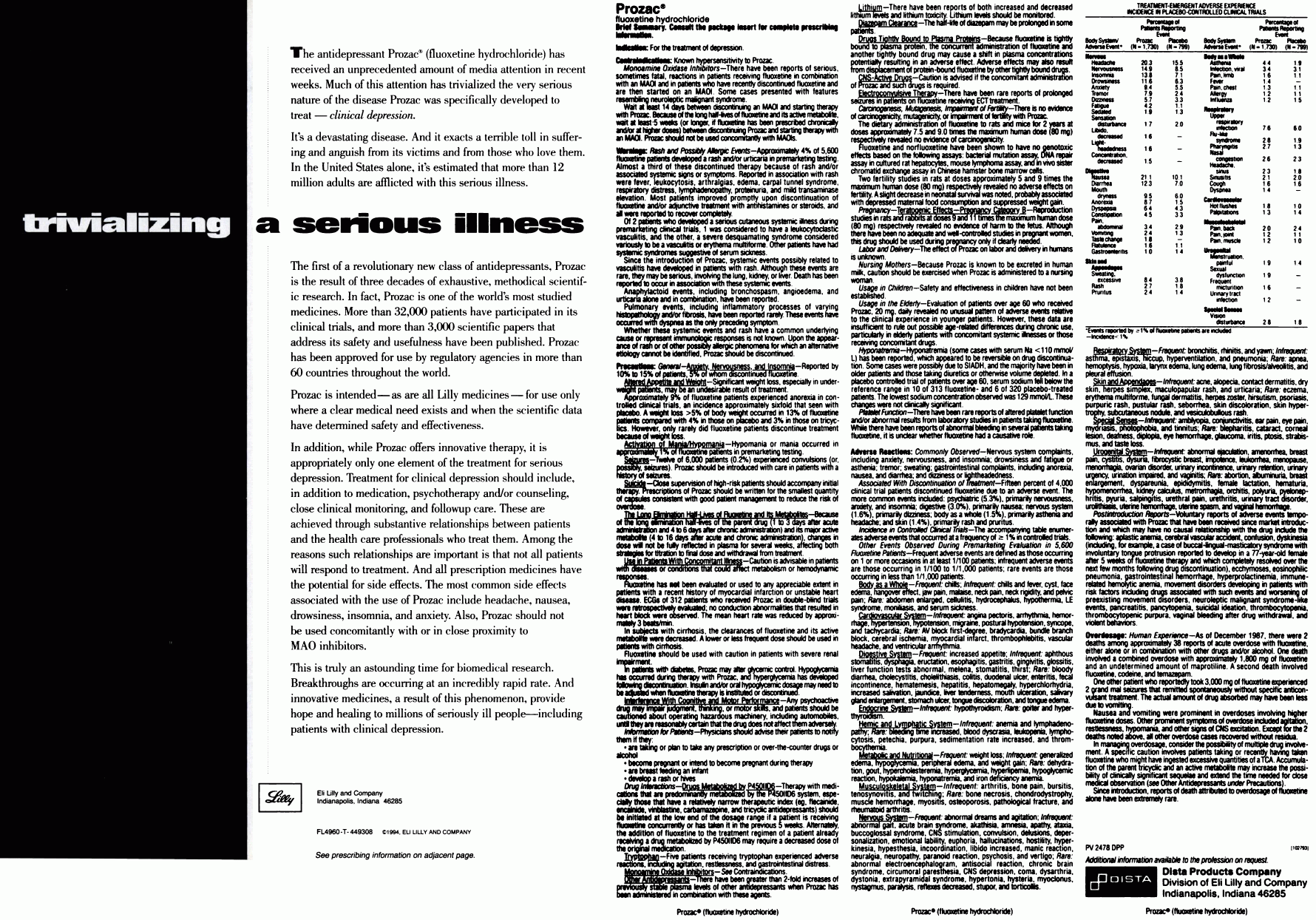

|
|
Prozac advertisement, 1994. Psychiatric Services, Vol. 45, No. 4. Trivializing a serious illness The antidepressant Prozac® (fluoxetine hydrochloride) has received an unprecedented amount of media attention in recent weeks. Much of this attention has trivialized the very serious nature of the disease Prozac was specifically developed to treat — clinical depression. It's a devastating disease. And it exacts a terrible toll in suffering and anguish from its victims and from those who love them. In the United States alone, it's estimated that more than 12 million adults are afflicted with this serious illness. The first of a revolutionary new class of antidepressants, Prozac is the result of three decades of exhaustive, methodical scientific research. In fact, Prozac is one of the world's most studied medicines. More than 32,000 patients have participated in its clinical trials, and more than 3,000 scientific papers that address its safety and usefulness have been published. Prozac has been approved for use by regulatory agencies in more than 60 countries throughout the world. Prozac is intended – as are all Lilly medicines – for use only where a clear medical need exists and when the scientific data have determined safety and effectiveness. In addition, while Prozac offers innovative therapy, it is appropriately only one element of the treatment for serious depression. Treatment for clinical depression should include, in addition to medication, psychotherapy and/or counseling, close clinical monitoring, and followup care. These are achieved through substantive relationships between patients and the health care professionals who treat them. Among the reasons such relationships are important is that not all patients will respond to treatment. And all prescription medicines have the potential for side effects. The most common side effects associated with the use of Prozac include headache, nausea, drowsiness, insomnia, and anxiety. Also, Prozac should not be used concomitantly with or in close proximity to MAO inhibitors. This is truly an astounding time for biomedical research. Breakthroughs are occurring at an incredibly rapid rate. And innovative medicines, a result of this phenomenon, provide hope and healing to millions of seriously ill people – including patients with clinical depression. Eli Lilly and Company Indianapolis, Indiana 46285 See prescribing information on adjacent page. Percentage of patients reporting fluoxetine-induced tremor: 7.9 |